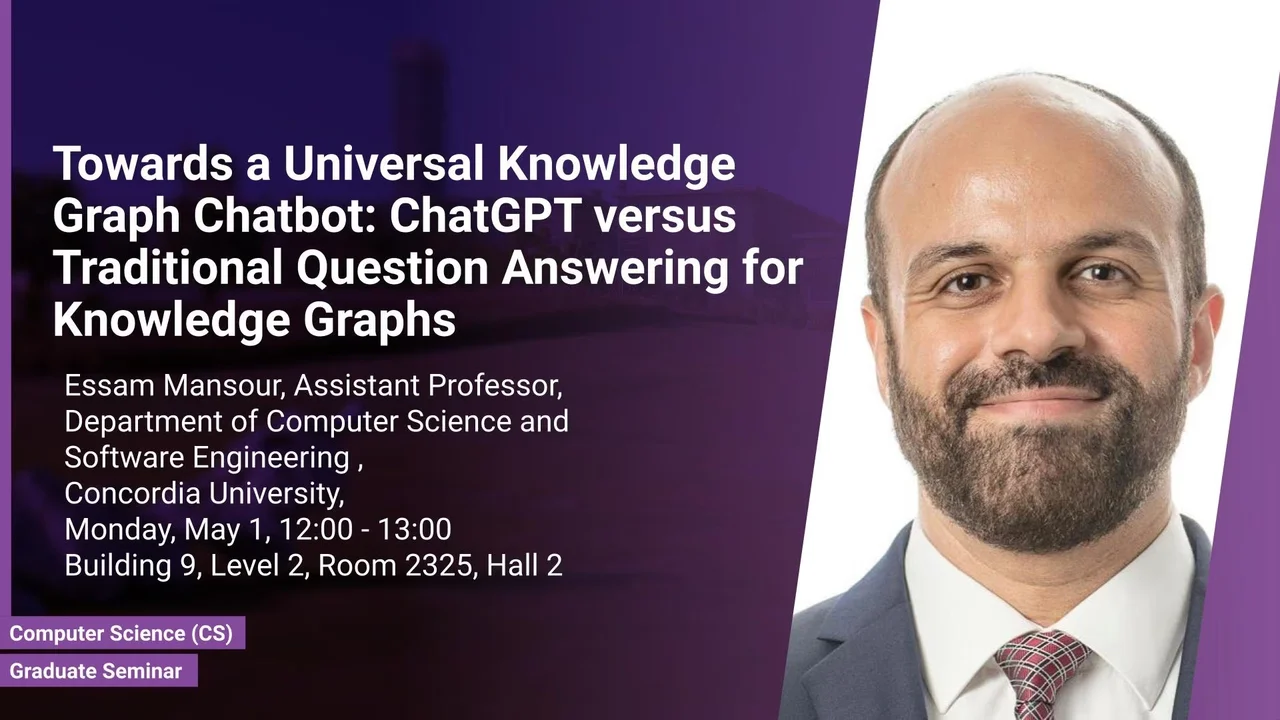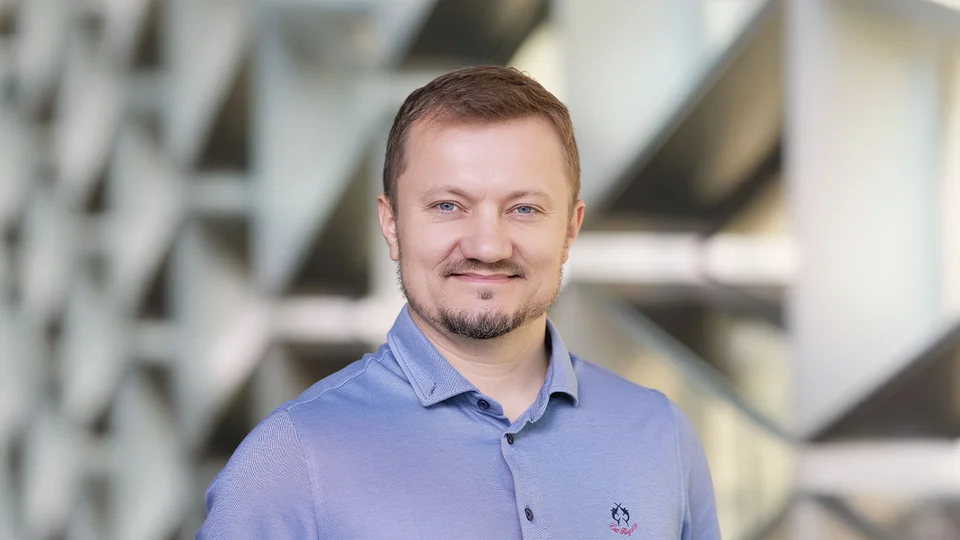
Towards a Universal Knowledge Graph Chatbot: ChatGPT versus Traditional Question Answering for Knowledge Graphs
Conversational AI and Question-Answering systems (QASs) for knowledge graphs (KGs) are both emerging research areas: they empower users with natural language interfaces for extracting information efficiently and effectively. While Conversational AI simulates human-like conversations, its effectiveness is limited by the available training data. However, QASs retrieve the most up-to-date information from KGs by translating natural language queries into formal queries that the database engine can process. In this talk, we examine the characteristics of existing approaches for combining Conversational AI and QASs to create novel KG chatbots. We also introduce KGQAn, a universal QA system that can be applied to any KG without the need for customization.
Overview
Abstract
Conversational AI and Question-Answering systems (QASs) for knowledge graphs (KGs) are both emerging research areas: they empower users with natural language interfaces for extracting information efficiently and effectively. While Conversational AI simulates human-like conversations, its effectiveness is limited by the available training data. However, QASs retrieve the most up-to-date information from KGs by translating natural language queries into formal queries that the database engine can process. In this talk, we examine the characteristics of existing approaches for combining Conversational AI and QASs to create novel KG chatbots. We also introduce KGQAn, a universal QA system that can be applied to any KG without the need for customization. Traditional QA systems are typically based on application-specific human-curated rules, or require prior information, expensive pre-processing and model adaptation for each targeted KG. Therefore, they are hard to generalize to a broad set of applications and KGs. Unlike traditional QA systems, KGQAn employs a neural sequence-to-sequence model to generate an intermediate abstract representation of the question, which is then translated into a SPARQL query using a just-in-time linker at query time. This approach uses publicly available APIs and RDF store indices, eliminating the need for pre-processing. Our experiments with several real KGs demonstrate that KGQAn is easily deployed and outperforms by a large margin the state-of-the-art in terms of quality of answers and processing time, especially for arbitrary KGs, unseen during the training. Based on our research, we identify several open opportunities for enhancing QASs with chatbot capabilities for KGs.
Brief Biography
Dr. Essam Mansour has been an assistant professor since 2019 in the Department of Computer Science and Software Engineering (CSSE) at Concordia University in Montreal and the head of the Cognitive Data Science lab (CoDS). His research program focuses on developing Cognitive Data Science Platforms for federated and big datasets. His research interests are in the broad areas of parallel/distributed systems, data management, knowledge graphs, and graph neural networks. Essam spent more than ten years doing world-class research in the areas of databases, parallel/distributed systems, big data analytics, and querying geo-distributed graphs. He is developing and optimizing big data systems to work at scale on supercomputers and cloud resources. During these years, his research contributions have led to more than 30 conferences and journal papers (mostly in top-tier venues, such as VLDBJ, PVLDB, SIGMOD, ICDE, EDBT, and CIKM). He has been invited as a reviewer for top journals, such as ACM Transactions on Database Systems (TODS), VLDB Journal, and IEEE Transactions on Knowledge and Data Engineering (TKDE). Essam also has served as a program committee member in several top conferences, such as VLDB 2016 to 2024, SIGMOD 2023, and ICDE 2016.

